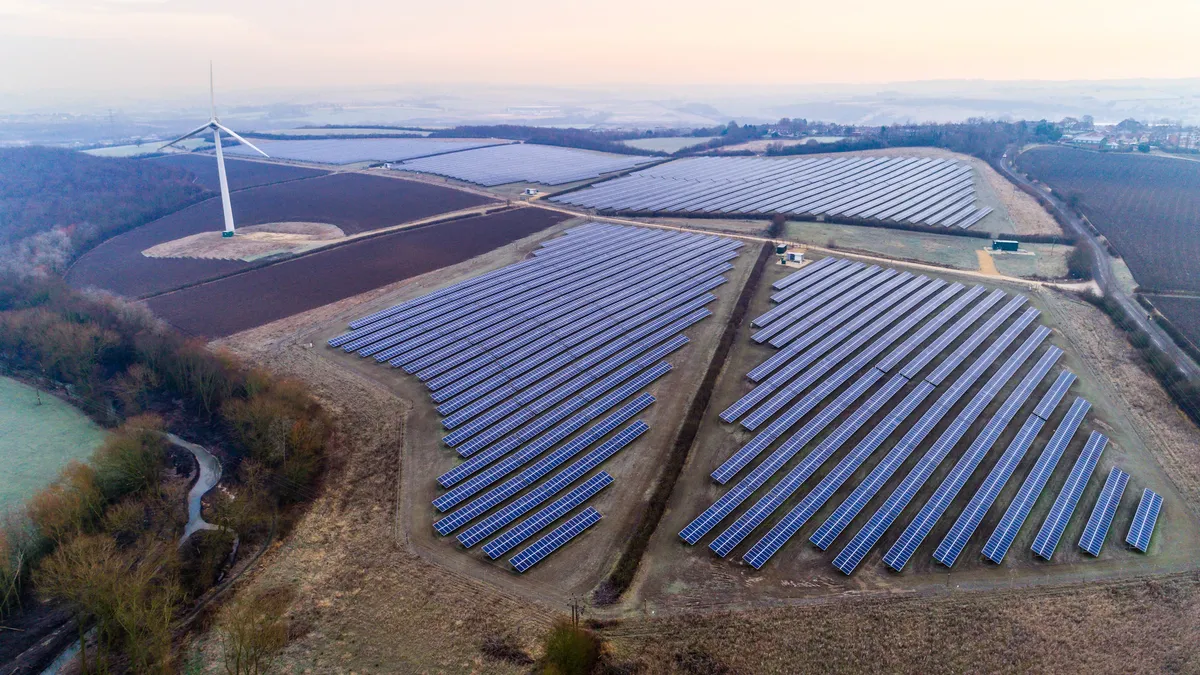Dive Brief:
-
U.S. power and utility sector merger and acquisitions activity fell in the 12 months ending Nov. 15, despite an increase following the passage of the Inflation Reduction Act, PricewaterhouseCoopers said in a report Thursday.
-
Deals in the period fell to 38 transactions valued at $37.9 billion, down from 56 deals worth $53.3 billion for the full year in 2021, likely because of macroeconomic pressures, according to PricewaterhouseCoopers. Renewable energy-related transactions accounted for 71% of the deal value in the most recent 12 months, up from 32% in all of 2021, the accounting firm said.
-
“Decarbonization tailwinds, now supercharged with the Inflation Reduction Act, are expected to drive deals activity as investors rationalize portfolios and capital deployment into opportunities best supportive of their goals and investment avenues,” Jeremy Fago, PwC principal and US power and utilities deals leader, said in a statement.
Dive Insight:
Renewable energy transactions jumped after President Joe Biden signed in mid-August the Inflation Reduction Act, which includes clean energy tax credit expansions and extensions, according to the report.
In the three months after the bill was signed, there were 15 clean energy deals valued at $20 billion, up from 10 transactions worth $5 billion in the previous seven and a half months.
“We expect energy transition policies including the IRA to fuel significant capital investment and deal activity in the sector in the years to come,” PwC analysts said in the report.
PwC analysts also expect “portfolio rationalization” in the utilities and power sector to continue.
“We’ve seen divestitures become a key part of management strategy for power and utilities,” they said. “These divestitures appear to be designed to ensure portfolios are aligned to core strategy and for future growth objectives.”
American Electric Power, for example, is preparing to sell its non-utility renewable energy portfolio and is considering selling its competitive retail operations. Duke Energy is also selling its unregulated renewable energy business.
Also, recent deal activity related to climate change, social justice equality and diversity indicates a focus on Environment, Social and Governance investing “is here to stay,” the analysts said.
An abundance of players, particularly driven by ESG initiatives, is increasing the competition for power sector assets, they said.
“And, the playing field is evolving – from competition for individual asset classes (e.g., renewables, utilities) to more broad-based sector deal competition as ESG-driven investment and initiatives bring new players to the arena,” the analysts said.
Strategic players drove deal value, accounting for 64% of the total deal value so far this year, up from 36% in 2021, according to the report. Typically, a strategic buyer purchases an asset in the same industry to create synergies or for other strategic reasons.
The top deals announced in the 12-month period were J.P. Morgan’s $7.8 billion purchase of South Jersey Industries; RWE Renewables Americas’ $6.8 billion purchase of Con Edison Clean Energy Businesses; BP’s $4.8 billion purchase of Archaea Energy; Hydro-Quebec International’s $2 billion purchase of Great River Hydro; and TotalEnergies’s $1.6 billion purchase for a 50% stake in Clearway Energy Group, according to PwC.














